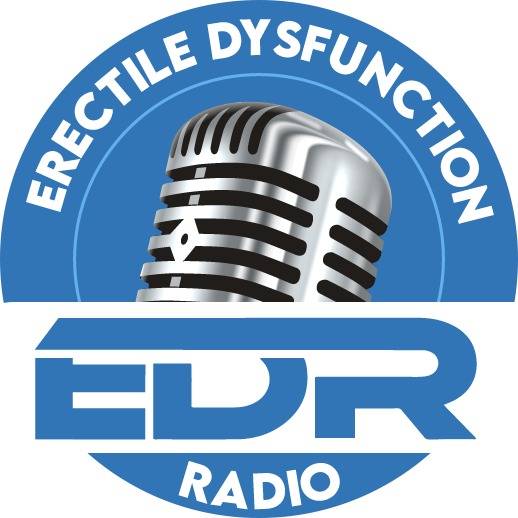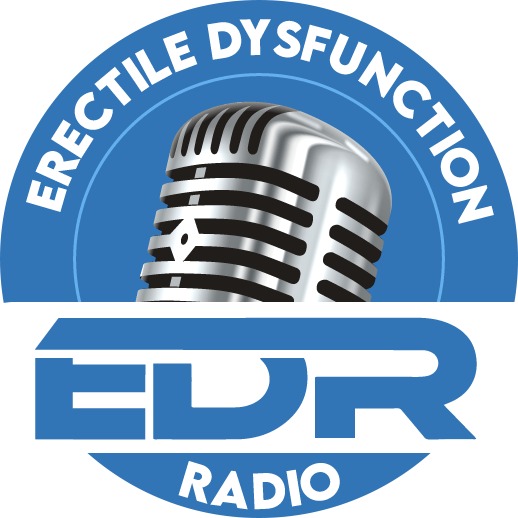
Listen to Sex Therapy and Erectile Dysfunction through the podcast player above.
Erectile Dysfunction Radio Podcast
We discuss sex therapy and how it can help a man improve his erections on today’s episode of the podcast.
The Erectile Dysfunction Radio Podcast is dedicated to educating and empowering men to address erectile dysfunction, improve confidence, and enhance the satisfaction in their relationships. This podcast is hosted by certified sex therapist, Mark Goldberg, LCMFT, CST.
Transcript of Episode 30 – Sex Therapy and Erectile Dysfunction
 Casey: I’ll ask you to please kick-off today’s discussion by describing and defining what sex therapy is.
Casey: I’ll ask you to please kick-off today’s discussion by describing and defining what sex therapy is.
Mark: Sex therapy is a form of talk therapy. So let’s just take a moment to talk a little bit about what talk therapy is. Talk therapy is an approach to helping people with mental health and mental illness challenges, it has developed tremendously over the last century.
Many people are familiar with Sigmund Freud, and the notion of lying on a couch and talking about their problems. Therapy has certainly developed into a much more broader field over a whole bunch of years since Freud.
There are multiple forms of therapy. There is emotional therapy, couples therapy, cognitive behavioral therapy; which all seek to help people alleviate certain emotional and mental challenges they might be facing. Sex therapy is a form of talk therapy that focuses on all types of issues and challenges pertaining to sexuality, and in particular, the type of sex therapy that I do helps people with the mental aspects of sexual dysfunction.
Casey: Is there anything more you want to tell us about the different forms of sex therapy?
Mark: As I mentioned, there’s different modalities or different approaches when it comes to therapy, and sex therapy is really no different. A way that I would think about sex therapy is that a sex therapist is somebody who has a wealth of knowledge about sexual issues and also has a wealth of knowledge about mental health therapy.
Depending on who your sex therapist is, will inform the way they approach sex therapy, some sex therapy is very behavioral…so that means that your sex therapist would be giving you a lot of things to do at home, behaviorally.
Other sex therapists are more cognitive, which means they’re focused more on what you are thinking. Some sex therapists are relationship-based, so they focus on the way you connect to other people and how that impacts your sexuality.
Sex therapy can take on a whole bunch of different forms. A well-trained sex therapist will have skills in multiple modalities in order to be able to best meet the unique challenges that each person or each client comes in with.
Casey: Is sex therapy just for couples? Or is it for individuals? Is it a mix of both? What’s more common there?
Mark: I’m not sure what’s more common, there certainly is sex therapy for individuals, and there is sex therapy for couples, there are a number of issues that are very much couples-driven issues.
One of the most common challenges that couples sex therapy focuses on is what’s called discrepancies in desire. Desire is an issue that we have touched on. Low libido, there’s also high libido.
Most commonly, two people who are in a relationship are not going to experience the same level of desire, the same frequency of desire, have the same wants or interests, and that’s what we call discrepancies in desire.

This can create a lot of conflict between couples and they can struggle to figure out how to resolve this in an amicable way. This can also cause a lot of distress for each partner on their own. Couples sex therapy is something that would be used for something like discrepancies in desire.
For issues pertaining to sexual dysfunction in one partner, the way I approach something like that is I would have an individual assessment to try to understand, are these individual factors that are part of driving or maintaining the sexual dysfunction, or is the relationship contributing to the sexual dysfunction or helping to maintain it in some sort of way.
Based on that initial assessment, a clinician or a therapist is going to determine what the best approach is going to be to help resolve the sexual dysfunction.
Now I’ll just add one more note, sometimes the sexual dysfunction is not really the issue necessarily, but it’s how the sexual dysfunction is impacting the couple in the relationship. In those instances as well, couples sex therapy may not be solution-oriented in the sense of trying to resolve the sexual dysfunction, but it would be necessary to help the couple manage, adjust or create a new sexual relationship together in the face of a sexual dysfunction.
Casey: Of course, this is the Erectile Dysfunction Radio Podcast, and we like to bring everything back to ED, so what can you tell us about sex therapy’s role in helping men overcome erectile dysfunction?
Mark: As I’ve mentioned on this podcast before, I am of the belief that the brain plays a very significant role in the erection process, and there are a multitude of factors that can interfere with the brain being in an optimal position or an optimal role to help men gain and maintain their erection.
Sex therapy can help men identify and address the particular factors that are contributing to not being able to gain and maintain an erection in whatever setting that is occurring.
I will mention that sex therapy, when it comes to erectile dysfunction, does not have to be a very long treatment process. In fact, a lot of times, men will come to therapy with the goal of resolving the erectile dysfunction and they may discover there are larger issues going on inside of their thinking, levels of stress, and they may be satisfied with adjusting the level of stress down to a point that allows them to engage comfortably with their partner and gain and maintain an erection, but may choose to not pursue to fully address the underlying stress.
Sex therapy can be something that is very brief and very goal-oriented, unlike other forms of therapy that may be longer term with less defined goals.
Casey: What are their benefits of sex therapy besides helping with erectile dysfunction?
 Mark: One of the primary benefits of sex therapy over other interventions is a man gets an opportunity to address concepts such as sexual pleasure, how he feels about himself as a man, potential challenges that are going on in a relationship, and a whole slew of other potential factors that an intervention like a medication just simply is not going to address.
Mark: One of the primary benefits of sex therapy over other interventions is a man gets an opportunity to address concepts such as sexual pleasure, how he feels about himself as a man, potential challenges that are going on in a relationship, and a whole slew of other potential factors that an intervention like a medication just simply is not going to address.
I understand that it’s a little bit harder, certainly a time investment, unlike a medication, but I think that there are tremendous potential benefits that are far reaching well beyond just addressing sexual dysfunction.
Casey: What would you say to someone who may be embarrassed to have such an intimate conversation with a sex therapist?
Mark: So I get it. I do understand how difficult it can be to talk about challenges, to talk about mental health, to talk about sexual dysfunction. These are really, really, really hard topics, so first and foremost, I get it. In my opinion, and from what I have seen, clinically, the benefits are tremendous. That’s the way I’ll put it. The benefits are tremendous for men who go through this process.
I have seen men make tremendous changes and shifts in a very short time that really just set their relationships in a different direction. I get that it is embarrassing, and I get that it’s difficult to talk about these things. But there are people out there who can help you make this tremendously different and make it a whole lot better, and can also help you overcome those feelings of embarrassment in the process.
Casey: What would be the difference between sex therapy and something, perhaps maybe a little more informal, like coaching or something of that nature, what are your thoughts on that?
Mark: This is a really tricky question. I’m a little hesitant to talk about a particular difference or differentiation between sex therapy and sex coaching, I think that certainly there is an overlap between that, I think the primary difference would be as follows: therapy in general is going to look at and potentially seek to address particular mental health challenges.
Sex coaching, at least from my perspective, would be a little less focused on what some of the factors are that are getting in the way, and a little bit more focused on how to progress forward in a positive direction. It might include a little bit more education or psycho-education, some very, very specific suggestions, but would potentially not address particular mental health challenges, which is more appropriate for the therapy realm.
Casey: Do you have any other final thoughts?
Mark: I guess coming off of the last question, the thought that comes to mind that I would just like to emphasize to our listeners is not to be intimidated by the word sex therapy, it doesn’t mean that there’s something terribly wrong with you, it doesn’t mean that you have severe mental health issues.
Sex Therapy is really very similar to other forms of therapy, it just means that you’re working with an expert who has intimate knowledge of how the brain and the body interact and relate and how that impacts sexual function or a slew of other sexual issues. So, think of it as going to any other therapy, which I know in and of itself can be a challenge, but certainly adding on the word, sex, I don’t want that to become something that is intimidating to our listeners.
Subscribe to our Podcast
All ED Radio Podcast episodes are available on this website, ErectionIQ.com. You can also find and subscribe to it for free on Apple Podcast/iTunes, Spotify and YouTube.
Ready to Learn More?
To start your in-depth approach to resolving ED, try our online learning course called BEYOND THE LITTLE BLUE PILL, The Thinking Man’s Guide to Understanding and Addressing ED.

Ready to talk to an ED expert? Erection IQ founder Mark Goldberg helps men resolve erectile dysfunction. He offers individual, one-on-one services to men throughout the world through a secure, telehealth platform. It’s 100% confidential. You can visit the Center for Intimacy, Connection and Change website to
Schedule A Consultationwith Mark.




